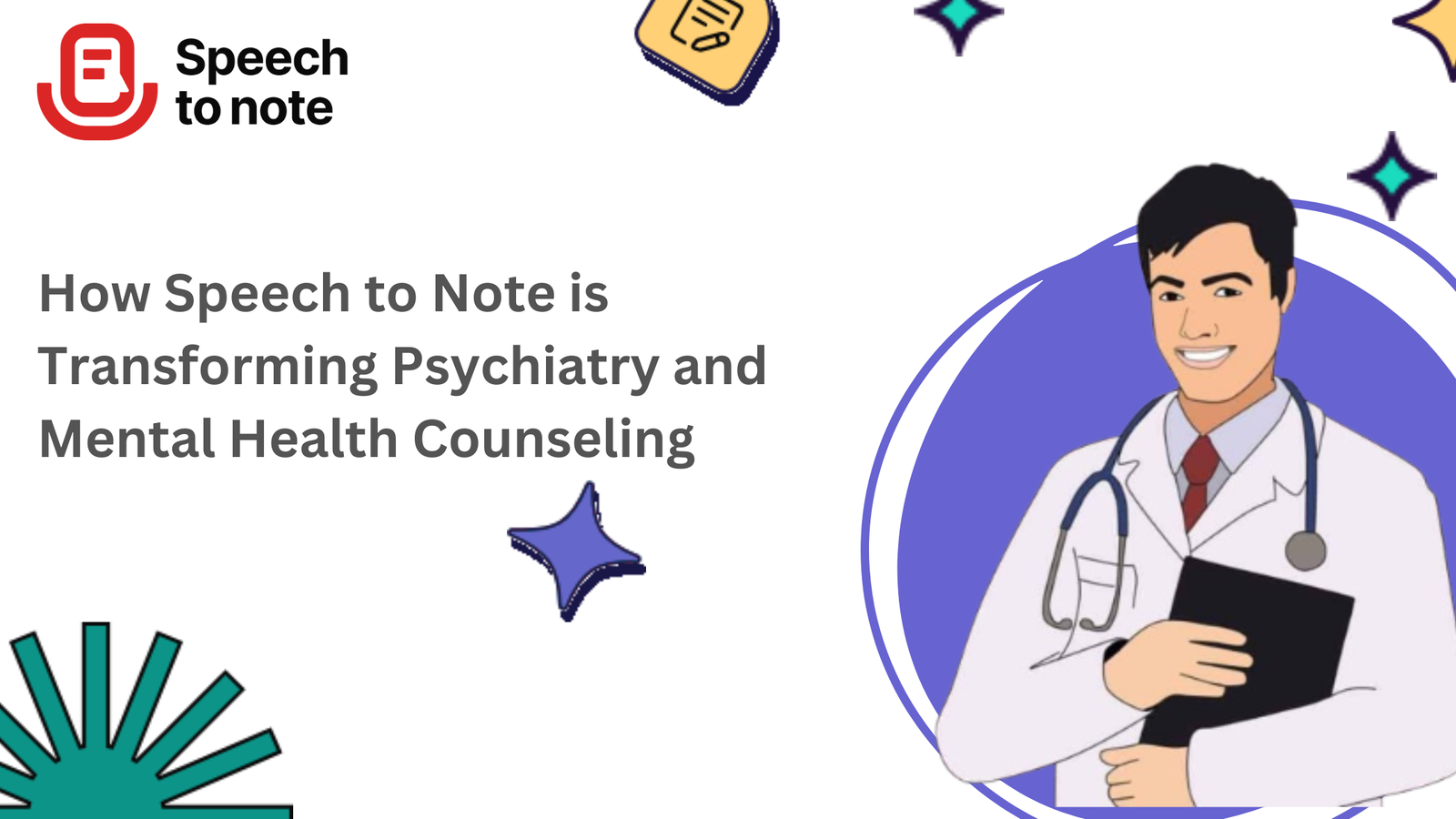Mental health conversations are delicate. A patient shares something deeply personal, a therapist listens closely, and somewhere in between, notes must be taken. The problem? Taking notes often breaks the flow. You look down at your notebook, and suddenly the moment of trust feels interrupted. This is where tools like speech to text are stepping in, quietly changing how psychiatry and counseling sessions unfold.
Listening Without Losing the Thread
Imagine sitting with a patient who’s finally opening up about years of bottled-up emotions. Do you really want to stop mid-story to scribble details? Most therapists don’t. Yet, accurate documentation is non-negotiable. Traditionally, it meant hours of typing case notes after sessions—long evenings spent reliving conversations instead of recharging for the next day.
With apps like Speech to Note, therapists can simply capture notes with voice. The spoken exchange gets transcribed in real time, and the counselor stays present, maintaining eye contact and empathy instead of juggling pen and paper. It’s not about replacing the human connection. It’s about protecting it.
Why Accuracy Matters So Much Here
Mental health professionals rely on nuances. A single phrase, a recurring metaphor, or the order in which someone describes their symptoms can make all the difference. Relying on memory is risky, and handwritten notes are often patchy. A speak writer tool doesn’t just save time—it ensures that these subtleties are captured faithfully.
One counselor I spoke to compared it to “having an assistant in the room who never interrupts.” You talk, your patient talks, and later you have detailed transcripts that can be sorted, highlighted, and revisited without guesswork.
Building Trust Through Presence
Here’s the thing: patients can feel when you’re distracted. Studies show that nearly 70% of communication is non-verbal—eye contact, body language, subtle cues. If a therapist spends half the session jotting down notes, patients may hold back. When a counselor relies on notes on speech instead, the focus shifts back to listening. That uninterrupted presence can encourage deeper honesty, leading to better therapeutic breakthroughs.
And it’s not just about the patient’s comfort. Clinicians report lower burnout when they don’t carry paperwork into the evening. Mental health work is already emotionally heavy; cutting out hours of admin work is no small relief.
A Practical Example in Psychiatry
Picture a psychiatrist in a busy urban hospital. Between back-to-back appointments, they barely have time to breathe, let alone write detailed summaries. With speech to text, each conversation is already documented by the end of the session. They can quickly tag a line like “patient reports heightened anxiety in mornings” and use it later when adjusting treatment plans.
It sounds simple, but anyone in healthcare knows how life-saving that efficiency can be. Less time on paperwork means more time focusing on patient care or even self-care, which, frankly, psychiatrists often neglect.
The Privacy Question
Of course, whenever technology enters the therapy room, the elephant in the room is privacy. Patients need to know their words aren’t floating around unprotected. Apps like Speech to Note are designed with encryption and secure storage in mind, but therapists still have to communicate that clearly. Transparency builds confidence—just as much as active listening does.
Bringing Tech Into Human Work
Let’s break it down: psychiatry and counseling are about human connection. Technology can never replace that. But it can stop the paperwork from overshadowing the conversation. In this sense, tools like Speech to Note aren’t adding distance; they’re removing it.
And if you’re skeptical, take a look at this demo video. Sometimes seeing it in action makes the lightbulb go off.
Final Thoughts
What this really means is that speech to text isn’t just a productivity hack for therapists. It’s a way to stay fully present, capture details that matter, and end the workday without dragging your notes home. Mental health counseling is already one of the hardest jobs out there; why make it harder with outdated tools?
If you’re a psychiatrist, counselor, or even a psychology student who’s drowning in paperwork, try giving Speech to Note a spin. You can download it right now on the Apple App Store or Google Play Store.
Because at the end of the day, the less time you spend writing, the more time you spend truly listening—and that’s what healing begins with.
Related Reads
- Custom Fitness App Development: Build the Fitness App Your Users Actually Want
- Saudi Arabia Smart Lighting Market Expansion, Trends, Growth and Outlook 2025-2033
- The Role of Healthcare Waste Management in Infection Control
- Beads Based Multiplex Assay for High-Throughput Biomarker Detection
- Top Sleep Specialist Doctor in Delhi – Comprehensive Care at JCS Lung & Sleep Centre
- How Does Custom Wrapping Support Eco-Friendly Cheese Brands?



